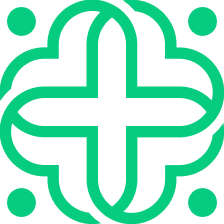In Nigeria’s healthcare and life sciences sector, the demand for a highly competent workforce is greater than ever. However, a persistent challenge remains: the gap between formal training and practical skilling. While training equips professionals with foundational knowledge, skilling ensures they can apply this knowledge effectively in real-world settings.
At Repsorpharm, we recognize the urgent need to shift from traditional training models to a more skill-based approach that enhances competence, efficiency, and innovation in healthcare and life sciences.
Understanding Training vs. Skilling
What is Training?
Training involves structured programs designed to transfer theoretical knowledge or procedural know-how. In Nigeria, training for healthcare and life sciences professionals typically occurs in universities, polytechnics, workshops, and online courses. This includes:
•Academic Degrees & Certifications – Medical doctors, pharmacists, laboratory scientists, and regulatory professionals receive training through formal education.
•Workshops & Seminars – Short-term learning programs that focus on industry trends, policies, and best practices.
•Onboarding Programs – Many organizations provide initial training to employees, covering company policies, compliance, and operational procedures.
While training provides a foundational understanding of concepts, it often lacks the hands-on experience necessary to navigate complex, real-world challenges.
What is Skilling?
Skilling goes beyond theoretical learning; it focuses on developing practical expertise, problem-solving abilities, and adaptability. This is crucial in a rapidly evolving field like healthcare and life sciences, where technology, regulations, and patient needs are constantly changing.
Skilling in this sector includes:
•Hands-on Laboratory & Clinical Experience – Practical exposure to laboratory equipment, patient care, and drug formulation techniques.
•Digital & Technological Skills – Understanding and applying AI-driven diagnostics, telemedicine, and electronic health records (EHR).
•Problem-Solving & Critical Thinking – Real-world case studies, internships, and mentorship programs that enable professionals to think critically and make informed decisions.
•Soft Skills Development – Communication, teamwork, and leadership, which are crucial for patient interaction and cross-functional collaboration.
The Nigerian Context: Why Skilling Matters More Than Ever
Nigeria’s healthcare and life sciences sector is facing several challenges that make skilling an urgent priority:
•High Unemployment & Skill Mismatch – Many graduates struggle to find jobs because their training does not match industry needs. Employers seek professionals who can hit the ground running, rather than those requiring extensive retraining.
•Technological Disruptions – The rise of AI, digital health solutions, and automation requires professionals who can leverage technology effectively. Skilling ensures they can integrate new tools into their daily work.
•Global Competitiveness – Nigerian healthcare professionals often seek international opportunities. To remain competitive globally, they need to develop skills beyond what traditional training offers.
•Patient-Centered Care & Innovation – Modern healthcare is shifting toward personalized medicine, digital therapeutics, and community-based solutions. Skilling ensures that professionals can innovate and adapt.
Bridging the Gap: The Way Forward
For Nigeria to build a resilient and future-ready healthcare and life sciences workforce, we must integrate training with skilling. Here’s how:
1.Industry-Academia Collaboration – Universities should partner with industry players to ensure training programs align with real-world demands.
2.Experiential Learning & Apprenticeships – Hospitals, pharmaceutical companies, and biotech firms must offer hands-on training programs to bridge the knowledge-to-action gap.
3.Continuous Professional Development (CPD) – Mandatory skilling programs should be incorporated into licensing renewals for medical and pharmaceutical professionals.
4.Technology-Driven Skilling – Upskilling professionals in data analytics, AI in healthcare, and digital health tools should be a priority.
5.Policy & Regulatory Support – The Nigerian government and professional bodies should mandate skilling programs alongside academic qualifications.
Conclusion
While training lays the foundation, skilling builds the expertise necessary for professionals to excel in Nigeria’s dynamic healthcare and life sciences sector. At Repsorpharm, we are committed to helping organizations and individuals bridge this gap through tailored solutions that enhance workforce capabilities and drive industry growth.
By shifting the focus from just training to practical skilling, we can create a more efficient, innovative, and globally competitive healthcare ecosystem in Nigeria.
For more insights and solutions on workforce development in healthcare and life sciences, contact Repsorpharm today.







